Second-Person Engagement and Group Identification
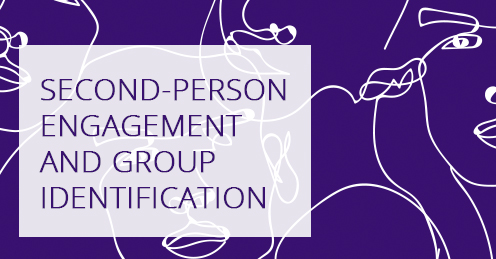
The general aim of the conference is to discuss different conceptualizations and empirical investigations on second-person engagement and group identification and explore interrelations between them.
The conference is part of the project "You and We: Second-Person Engagement and Collective Intentionality", funded by the Independent Research Fund Denmark, and it is co-organized by Felipe León and Dan Zahavi.
Confirmed speakers
- Malinda Carpenter (University of St. Andrews, UK)
- Daniel Dukes (University of Amsterdam, NL)
- Naomi Eilan (Warwick University, UK)
- Arto Laitinen (University of Tampere, FI)
- Henrike Moll (University of Southern California, US)
- Vasudevi Reddy (University of Portsmouth, UK)
- Philippe Rochat (Emory University, Atlanta, US)
- Patricia Meindl (CFS – University of Copenhagen, DK)
- Dan Zahavi (CFS – University of Copenhagen, DK)
- Felipe León (CFS – University of Copenhagen, DK)
On the one hand, an increasing number of philosophers and psychologist have investigated the role of second-person engagements in how we understand other people. Although there is a broad consensus that relating to a 'you' is different from relating to a 'she' or 'he', it has proven challenging to pinpoint what precisely this distinctiveness amounts to. On the other hand, some strands of research on group identification and collective intentionality have investigated the relationship between individual or I-intentionality, and collective or we-intentionality, understood as the capacity to identify and share mental states with other people, and thereby adopt a group- or we-perspective.
Although the topics of second-person engagement and group identification point to pivotal structures of human sociality, their interrelations remain largely unexplored. Some of the questions that will be discussed at the conference are: Do second-person engagements play any role in how people come to identify with groups, and thereby adopt a we-perspective? How, if at all, are second-person engagements and group identification modulated by the spatio-temporal proximity of the participants in a social interaction, and by the number of them (in dyadic, triadic, and larger-scale interactions)? Does joint attention amount to a basic form of we-perspective? What is the developmental route of second-person engagements and group identification?
Thursday, November 29
|
09:00-09:15 |
Introduction |
|
09:15-10:30 |
Naomi Eilan (Warwick): On the role of mutuality in self and other knowledge |
|
10:30‐10:45 |
Coffee Break |
|
10:45‐12:00 |
Henrike Moll (Los Angeles): Second-Personal Learning |
|
12:00-13:00 |
Lunch Break |
|
13:00‐14:15 |
Malinda Carpenter (St. Andrews): From shared experiences to shared identities in infancy and early childhood |
|
14:15-14:30 |
Coffee Break |
|
14:30-15:45 |
Philippe Rochat (Atlanta): Intimacy and affiliation in infancy |
|
15:45-17:00 |
Felipe León (Copenhagen): Joint attention, self-other equivalence, and the we-perspective |
Friday, November 30
|
09:15-10:30 |
Daniel Dukes (Amsterdam): Affective social learning: The importance of group identification in the transmission of social value |
|
10:30‐10:45 |
Coffee Break |
|
10:45‐12:00 |
Vasudevi Reddy (Portsmouth): You, us and them: emotional engagement and belongings |
|
12:00-13:00 |
Lunch Break |
|
13:00‐14:15 |
Patricia Meindl (Copenhagen) and Dan Zahavi (Copenhagen): Being a we: Asymmetrical reciprocity in Husserl, Buber, and Young |
|
14:15-14:30 |
Coffee Break |
|
14:30-15:45 |
Arto Laitinen (Tampere): Reasons and sakes: impersonal, second-personal and first-person plural |
Malinda Carpenter: From shared experiences to shared identities in infancy and early childhood
Humans, more than any other species, have a strong motivation to share and align their psychological states and behaviour with others. This begins already in infancy. I will present a broad overview of our research on early social interaction and social relations, ranging from studies of joint attention and joint action in infancy to studies of group identification in early childhood. I will also discuss some recent theoretical work on joint attention (in which we delineate different levels of it with a focus on the role of second-person engagement and communication, and consider how joint attention relates to collective attention). Finally, if all goes well with a current study, I will present the results of an experiment designed to test some of these ideas with adults.
Daniel Dukes: Affective social learning: The importance of group identification in the transmission of social value
In the same sense that social learning concerns learning from others how to use objects, affective social learning (ASL) concerns learning from others how to value objects (tangible objects, ideas, other people etc.) We may learn from others’ affective expressions, for example, whether to support the team in red or blue, which god to pray to, and whether Brexit is a good idea. When the circle of informants is relatively small, nothing less than the culture is transmitted and perpetuated (Clément and Dukes, 2013). In short, whether in the case of a young child or a newcomer to a particular society, ASL explains how individuals learn what is important (and unimportant) to their social group.
Affective social learning is a relatively novel concept (Clément & Dukes, 2017; Dukes & Clément, Eds., 2019) that includes processes such as emotional contagion, social referencing and natural pedagogy. After sketching out its structure, I will highlight the role of group identification in these component processes. For example, it would make no sense to rely on the affective testimony of an out-group member when trying to learn something about the in-group’s values. In particular I will consider whether adopting a we-perspective can provide a better explanation for the concept of emotional contagion than has traditionally been the case.
Naomi Eilan: On the role of mutuality in self and other knowledge
In his ‘sociology of the senses’ Georg Simmel contrasts unidirectional observation of people with the ‘mutual glance’, in which we find 'the most direct and purest reciprocity that exists anywhere'. Closely echoing Buber on I and Thou, he writes that in such exchanges” 'The eye cannot take unless at the same time it gives...In the same act in which the observer seeks to know the observed, he surrenders himself to be understood by the observed’. In my talk, I (a) explore the significance of taking such reciprocity seriously when explaining the emergence and nature of self-consciousness, contrasting Simmel (and Buber) with the role Sartre gives the other’s ‘objectifying look’ in explaining self-consciousness and (b) draw out some implications of putting this kind of reciprocity centre stage for the way we explain the triadic relation between self-knowledge, knowledge of others and knowledge of the world around us.
Arto Laitinen: Reasons and sakes: impersonal, second-personal and first-person plural
This talk will focus on what it is to act for “your sake” or “our sake”, and how these second-personal and first-person plural reasons relate to impersonal reasons. It also distinguishes between acting because something would benefit us, because it is an appropriate response to some of our evaluative features, and because we have committed ourselves to so doing.
Felipe León: Joint attention, self-other equivalence, and the we-perspective
On a widely held characterization, triadic joint attention is the capacity to perceptually attend to an object or event together with another subject. In the last four decades, research in developmental psychology has provided mounting evidence of the crucial role that this capacity plays in socio-cognitive development, early language acquisition, and the understanding of others’ perspectives. In my talk, I will explore the contrast between reductive and non-reductive approaches to (triadic) joint attention, and I will argue in favour of a non-reductive view of joint attention that gives pride of place to the idea that co-attenders are related to one another as a ‘you’. I will do so by contrasting and assessing two ways of understanding the putative second-personal character of joint attention. According to one view, such character is consistent with the idea that, at a basic level, co-attenders relate to one another via recursive mindreading (Tomasello 2014). On the second view, which I favour, the second-personal character of joint attention is an alternative to the idea that co-attenders relate to one another via recursive mindreading. Finally, I will discuss how these two views relate to the proposal that joint attention is a “primordial form of perceptual we-intentionality” (Rakoczy 2018).
Patricia Meindl and Dan Zahavi: Being a we: Asymmetrical reciprocity in Husserl, Buber and Young
In our talk, we will contrast two different approaches to the nature of the we. According to the first, we-membership requires an eradication of individuality, a submerging of our differences in a collective identity. According to the second, we-membership crucially requires a preservation of plurality and difference. Drawing on the work of Buber, Young and Husserl we will defend the second option.
Henrike Moll: Second-Personal Learning
Social learning is a capacity whereby one individual acquires a capacity from another. According to a widespread view, this capacity takes on a unique form in humans and differs qualitatively from any analogous capacity for capacity-acquisition we find among non-human animals. This view is popular among philosophers, psychologists, and anthropologists. But despite this agreement about the uniqueness of human learning, there is no agreement about what exactly it is about this capacity that makes it species-unique. In my talk, I will argue that human learning is a necessarily bipolar capacity that a child can only exercise jointly with another human. For a child, another human or her behavior is neither a mere occasion for learning, nor does the content of learning simply happen to have its source in another human. Rather, it is a constitutive aspect of the content of learning that the learning child knows its source to be in another human. The learner understands the activity through which she acquires a capacity to be a manifestation of another human’s capacity. Learning is thus something that can only be done together. It is a unique form of joint action.
Vasudevi Reddy: You, us and them: emotional engagement and belongings
What is really different about the 2nd person? How do the boundaries of belonging start to differentiate shades of groups and sub-groups? I tackle these two questions with data from very early social interactions in infancy and from family conversations in early childhood. I suggest that the answers to both questions point to the emotional connections and conflicts emerging within 2nd person engagements.
The experience of seeing, and being seen by, another person as a You is a crucial source of understanding what it means to belong with someone. The recognition of the boundaries of being together, and of the varieties of belonging possible, emerge slowly not only from experiences of being in emotional connection, but from the practices that threaten or disallow connection. From the talk of very young children it is clear that they develop a flexible grasp of the moving boundaries of us and them. This may be particularly pronounced in contexts where linguistic subtleties already differentiate different shades of 'us'.
Philippe Rochat: Intimacy and affiliation in infancy
Intimacy develops in the womb and gets further calibrated after birth in the shared experience arising from dyadic exchanges with caretakers. Primary intersubjectivity shapes social preferences and infants’ early inclination to affiliate and get attached to selected others. A central question is what constitutes early intimacy and what drives the early propensity to affiliate? Based on empirical facts, I try to specify some of the constitutive elements of human intimacy and what might be the driving force behind the “We-experience” in early development.
Malinda Carpenter

Malinda Carpenter is a Professor of Developmental Psychology in the School of Psychology & Neuroscience at the University of St Andrews in the UK. She got her PhD from Emory University in the US in 1995 and, following post-doctoral positions in Denver and Liverpool, worked in the Department of Developmental and Comparative Psychology at the Max Planck Institute for Evolutionary Anthropology in Leipzig, Germany until 2017, when she moved to St Andrews. She studies social cognition, social-affiliative motivations, and social behavior, mainly in typically-developing infants and young children, but also in apes (and, in the past, children with autism). Her research interests include participation in shared activities (joint attention, joint action), social functions of imitation, prosocial and affiliative behavior, preverbal communication, and relations with in-group versus out-group members.
Daniel Dukes
 Having completed his doctorate at the University of Neuchâtel, Switzerland in 2017 under the supervision of Fabrice Clément, Daniel is currently the beneficiary of funding from the Swiss National Science Foundation to carry out research in Amsterdam, and Oxford. He is also employed at the University of Fribourg, Switzerland. His research is focused on socio-emotional process, the non-verbal expression of emotion and the emotion of interest. He is in the process of editing a book with Fabrice Clément entitled, “Affective Social Learning: conceptualizing the transmission of social value” with Cambridge University Press, which is due for publication at the end of next year.
Having completed his doctorate at the University of Neuchâtel, Switzerland in 2017 under the supervision of Fabrice Clément, Daniel is currently the beneficiary of funding from the Swiss National Science Foundation to carry out research in Amsterdam, and Oxford. He is also employed at the University of Fribourg, Switzerland. His research is focused on socio-emotional process, the non-verbal expression of emotion and the emotion of interest. He is in the process of editing a book with Fabrice Clément entitled, “Affective Social Learning: conceptualizing the transmission of social value” with Cambridge University Press, which is due for publication at the end of next year.
Naomi Eilan
 Naomi Eilan is Professor of Philosophy at Warwick University and Director of the Warwick Mind and Action Research Centre. She is on the Advisory Board of the European Society of Philosophy and Psychology (and was its President between 2009-2014). She has a longstanding interest in issues related to joint attention and second person thought, and is the editor of Special Issue: The Second Person, Philosophical Explorations, vol 17, issue 3. (Reprinted in hardback as The Second Person: Philosophical and Psychological Perspectives) and joint editor of Joint Attention: Communication and Other Minds, Problems in Philosophy and Psychology, Oxford University Press. (with Christoph Hoerl, Teresa McCormack and Johannes Roessler).
Naomi Eilan is Professor of Philosophy at Warwick University and Director of the Warwick Mind and Action Research Centre. She is on the Advisory Board of the European Society of Philosophy and Psychology (and was its President between 2009-2014). She has a longstanding interest in issues related to joint attention and second person thought, and is the editor of Special Issue: The Second Person, Philosophical Explorations, vol 17, issue 3. (Reprinted in hardback as The Second Person: Philosophical and Psychological Perspectives) and joint editor of Joint Attention: Communication and Other Minds, Problems in Philosophy and Psychology, Oxford University Press. (with Christoph Hoerl, Teresa McCormack and Johannes Roessler).
Arto Laitinen
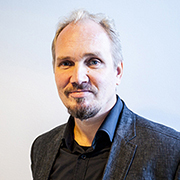 Arto Laitinen is Professor of Social Philosophy at University of Tampere, Finland. He has published e.g. on theories of mutual recognition, and is an editor of Journal of Social Ontology.
Arto Laitinen is Professor of Social Philosophy at University of Tampere, Finland. He has published e.g. on theories of mutual recognition, and is an editor of Journal of Social Ontology.
Felipe León
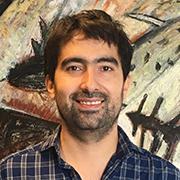 Felipe León is a postdoc at the Center for Subjectivity Research, University of Copenhagen, where he obtained his PhD degree in Philosophy in 2016. His main areas of research are classical phenomenology, social cognition, and collective intentionality. Recent publications include: Dación y reflexión: Una investigación fenomenológica (National University of Colombia, 2016), ‘Phenomenology of experiential sharing: The contribution of Schutz and Walther’ (with Dan Zahavi, in: Salice, A. & Schmid, H. B. (eds.) The Phenomenological Approach to Social Reality: History, Concepts, Problems, p. 219-234, 2016), ‘Emotional Sharing and the Extended Mind’ (with Thomas Szanto and Dan Zahavi, Synthese, 2017), and ‘For-me-ness, For-us-ness, and the We-relationship’ (Topoi, 2018).
Felipe León is a postdoc at the Center for Subjectivity Research, University of Copenhagen, where he obtained his PhD degree in Philosophy in 2016. His main areas of research are classical phenomenology, social cognition, and collective intentionality. Recent publications include: Dación y reflexión: Una investigación fenomenológica (National University of Colombia, 2016), ‘Phenomenology of experiential sharing: The contribution of Schutz and Walther’ (with Dan Zahavi, in: Salice, A. & Schmid, H. B. (eds.) The Phenomenological Approach to Social Reality: History, Concepts, Problems, p. 219-234, 2016), ‘Emotional Sharing and the Extended Mind’ (with Thomas Szanto and Dan Zahavi, Synthese, 2017), and ‘For-me-ness, For-us-ness, and the We-relationship’ (Topoi, 2018).
Patricia Meindl
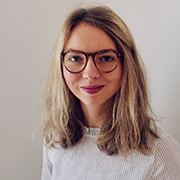 Patricia Meindl is a PhD-fellow at the Center for Subjectivity Research, University of Copenhagen. In January 2018 she joined the research project "You and We: Second-Person Engagement and Collective Intentionality", directed by Dan Zahavi. In her doctoral dissertation she investigates the significance of early phenomenological accounts of sociality for our contemporary understanding of we-experiences. Most recently, she has been examining parallel conceptions of communal experiences surfacing in both phenomenology and Jewish dialogical philosophy.
Patricia Meindl is a PhD-fellow at the Center for Subjectivity Research, University of Copenhagen. In January 2018 she joined the research project "You and We: Second-Person Engagement and Collective Intentionality", directed by Dan Zahavi. In her doctoral dissertation she investigates the significance of early phenomenological accounts of sociality for our contemporary understanding of we-experiences. Most recently, she has been examining parallel conceptions of communal experiences surfacing in both phenomenology and Jewish dialogical philosophy.
Henrike Moll
 Henrike Moll is an Associate Professor in the psychology department at the University of Southern California. She studies the early social-cognitive development of infants and young children. Her work focuses particularly on joint attention, perspective-taking, communication, and social learning. One of Henrike’s main theses is that human cognition is categorically different from animal cognition, and that this “anthropological difference” is visible from early on in human behavior and interaction. Henrike unites experimental studies with observational investigation and philosophical analyses. Her work has been funded by the US Department of Defense, the Spencer Foundation, the Volkswagen Foundation, and the Saxonian Academy of the Sciences, among others.
Henrike Moll is an Associate Professor in the psychology department at the University of Southern California. She studies the early social-cognitive development of infants and young children. Her work focuses particularly on joint attention, perspective-taking, communication, and social learning. One of Henrike’s main theses is that human cognition is categorically different from animal cognition, and that this “anthropological difference” is visible from early on in human behavior and interaction. Henrike unites experimental studies with observational investigation and philosophical analyses. Her work has been funded by the US Department of Defense, the Spencer Foundation, the Volkswagen Foundation, and the Saxonian Academy of the Sciences, among others.
Vasudevi Reddy
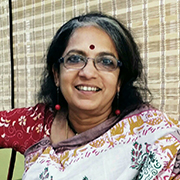 Vasu Reddy has been interested in the origins and development of social cognition, and has been exploring the role of emotional engagement in social understanding. She focuses on everyday, ordinary engagements (such as teasing and clowning and showing-off or feeling shy) which often tend to get ignored in mainstream theories. Her interest in engagement as the route to understanding has led her to questions about the nature and influence of culture on social understanding. Her book How Infants Know Minds argues for a second-person approach to knowing minds, a dialogical and emotion-based route to an old problem. She is a Professor of Developmental and Cultural Psychology and Director of the Centre for Situated Action and Communication at the University of Portsmouth.
Vasu Reddy has been interested in the origins and development of social cognition, and has been exploring the role of emotional engagement in social understanding. She focuses on everyday, ordinary engagements (such as teasing and clowning and showing-off or feeling shy) which often tend to get ignored in mainstream theories. Her interest in engagement as the route to understanding has led her to questions about the nature and influence of culture on social understanding. Her book How Infants Know Minds argues for a second-person approach to knowing minds, a dialogical and emotion-based route to an old problem. She is a Professor of Developmental and Cultural Psychology and Director of the Centre for Situated Action and Communication at the University of Portsmouth.
Philippe Rochat
 Philippe Rochat was born and raised in Geneva, Switzerland. He was trained by Jean Piaget and his close collaborators, and received his Ph.D. from the University of Geneva, Switzerland in 1984. He then began a series of Post Doctoral internships at Brown University, the University of Pennsylvania, and Johns Hopkins University, in the United States where he conducted research on action, perception and cognitive development in human infants. Rochat taught and did research in developmental psychology at the University of Massachusetts, and joined the faculty at Emory University in Atlanta in the 1990's, where he is a professor of psychology. A 2006-2007 John Simon Guggenheim fellow, he has published 5 books and many scholarly articles on infant and child development. The main focus of his research is the early sense of self, emerging self-concept, the development of social cognition and relatedness, and the emergence of a moral sense during the preschool years in children from all over the world. Philippe Rochat's research emphasizes differences in populations growing up in highly contrasted cultural environments, as well as highly contrasted socio-economic circumstances.
Philippe Rochat was born and raised in Geneva, Switzerland. He was trained by Jean Piaget and his close collaborators, and received his Ph.D. from the University of Geneva, Switzerland in 1984. He then began a series of Post Doctoral internships at Brown University, the University of Pennsylvania, and Johns Hopkins University, in the United States where he conducted research on action, perception and cognitive development in human infants. Rochat taught and did research in developmental psychology at the University of Massachusetts, and joined the faculty at Emory University in Atlanta in the 1990's, where he is a professor of psychology. A 2006-2007 John Simon Guggenheim fellow, he has published 5 books and many scholarly articles on infant and child development. The main focus of his research is the early sense of self, emerging self-concept, the development of social cognition and relatedness, and the emergence of a moral sense during the preschool years in children from all over the world. Philippe Rochat's research emphasizes differences in populations growing up in highly contrasted cultural environments, as well as highly contrasted socio-economic circumstances.
Dan Zahavi
 Dan Zahavi is Professor of Philosophy at the University of Copenhagen and the University of Oxford, and Director of the Center for Subjectivity Research in Copenhagen. He is the author of Self-Awareness and Alterity (1999), Husserl’s Phenomenology (2003), Subjectivity and Selfhood (2005), Self and Other (2014), and Husserl’s Legacy (2017). He co-authored The Phenomenological Mind (2012) with Shaun Gallagher, and has recently edited The Oxford Handbook of Contemporary Phenomenology (2012) and The Oxford Handbook of the History of Phenomenology 2018)
Dan Zahavi is Professor of Philosophy at the University of Copenhagen and the University of Oxford, and Director of the Center for Subjectivity Research in Copenhagen. He is the author of Self-Awareness and Alterity (1999), Husserl’s Phenomenology (2003), Subjectivity and Selfhood (2005), Self and Other (2014), and Husserl’s Legacy (2017). He co-authored The Phenomenological Mind (2012) with Shaun Gallagher, and has recently edited The Oxford Handbook of Contemporary Phenomenology (2012) and The Oxford Handbook of the History of Phenomenology 2018)
The conference is free and open to all but registration is needed.
Please use this registration form no later than Wednesday 28 November 2018.
For queries about the conference, please contact administrator Merete Lynnerup
The conference will take place at University of Copenhagen, South Campus in building 22, ground floor, aud. 11 (22.0.11)
Address: University of Copenhagen, South Campus, Njalsgade 134 (entrance from Emil Holms Kanal 2) Aud. 22.0.11, Copenhagen.
South Campus is within a 2,5 km radius from city center, main train station, city hall and other central parts of Copenhagen.
How to get to South Campus:
By bus: Bus number 12 (from Vesterport Station and the town hall square) and number 33 (from the town hall square).
By metro: Take the metro to Islands Brygge Station. From the station you have a 5-minute walk to the campus area.
Take the metro from the airport to Copenhagen
Link to Rejseplanen: Here you can simply write where from and where to you want to go and the site will provide you with all travel details (distance, price, travel possibilities).
It is in general very easy to walk (and bike) in Copenhagen.
Funding
The conference is funded by the Independent Research Fund Denmark.


